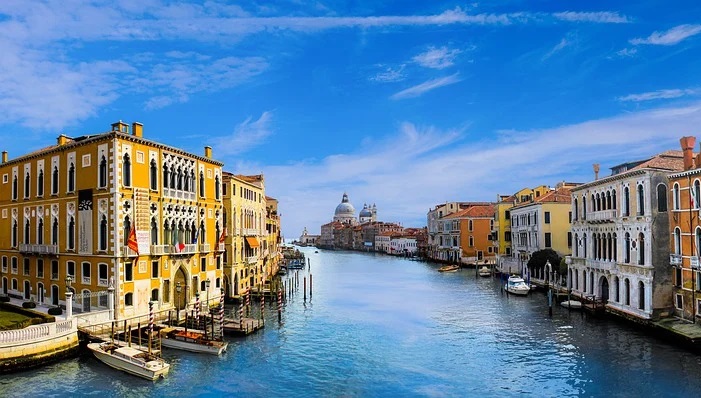Clear skies, breathable air, animals of all kinds that walk the streets of our cities. Etna puffing its smoke in a sky that has never been so clean. A picture that somehow cheers up. But is this really good news? What is happening to our planet? While the data on coronavirus infections stabilize, at least in Italy, this pandemic seems to have had a positive effect on our atmosphere. And what better time to talk about this today: April 22 is Earth day, one of the most important celebrations in the world.

According to recent studies, it seems that there has been a sharp decline in greenhouse gas emissions in recent months. It means that pollution decreases and the air really becomes more breathable. But one wonders: how long will all this last. And above all, is nature really awakening right now that man is sick? Let's try to understand something more.
The planet and the effects of the coronavirus
When it all began in China, images released by NASA that framed the continent from above made headlines. They showed the color of the sky changing from yellow to blue. Cleaner air, therefore, more breathable, probably due to the stop imposed on most Chinese industries and factories to contain the spread of the infection. Similar situation also in other continents of the planet.

And the images that showed the suddenly clear waters of Venice or the numerous animals that invaded the streets of the big cities went around the web. From South America, passing through London, Paris, and other big cities: animals roaming the streets to regain possession of the parks and nature. So it comes to saying: the pandemic has stopped man, it has closed factories, it has forced us to stop using the car, not to mention the aircraft. The earth returns to breathe and nature takes back its spaces.
However, the data on pollution say something else about the planet
We could therefore be under the illusion that the pandemic could really have done our planet good. Of course yes; but that's not enough. Apparently, in fact, despite four and a half billion people have been locked in their homes for months now, the lockdown should last a long time to see any lasting effects. In fact, based on the data of a recent study reported by the British association "Carbon Brief"carbon dioxide emissions will drop by 5,5% at the end of the year. But in order to keep global warming at + 1,5 ° C it would be necessary to reach -7,6%.

At least this would be needed to be able to comply with the objectives of the Paris Agreement, signed in 2015. In fact, the UNEP Emission Gap report the United Nations Environment Program speaks clearly: to limit the growth of the global average temperature to a maximum of 1,5 degrees Celsius, at the end of the century, compared to pre-industrial levels, the decline should be equal to 7,6%, in the next ten years. “The concentration of CO2 in the atmosphere - reports Carbon Brief - and the global average temperature will continue to increase until the net annual emissions are eliminated. Any reduction we will achieve in 2020 for the coronavirus will have only a relative impact ".
An extra commitment to respect the environment: it is up to man to do his part
What remains to be done then to keep on these parameters. According to the British association, a profound change in our economic systems, in our development models and in our consumption habits would be needed. A change that lasts for a long time. The risk is that when we return to normal, we will see a collapse of the ecosystem again and everything that man unwittingly does to protect the planet will be nullified.. It is therefore up to each of us to do our part. Taking better care of the environment starting with the little things. The results will come and then only in this way can we really talk about a turning point.




